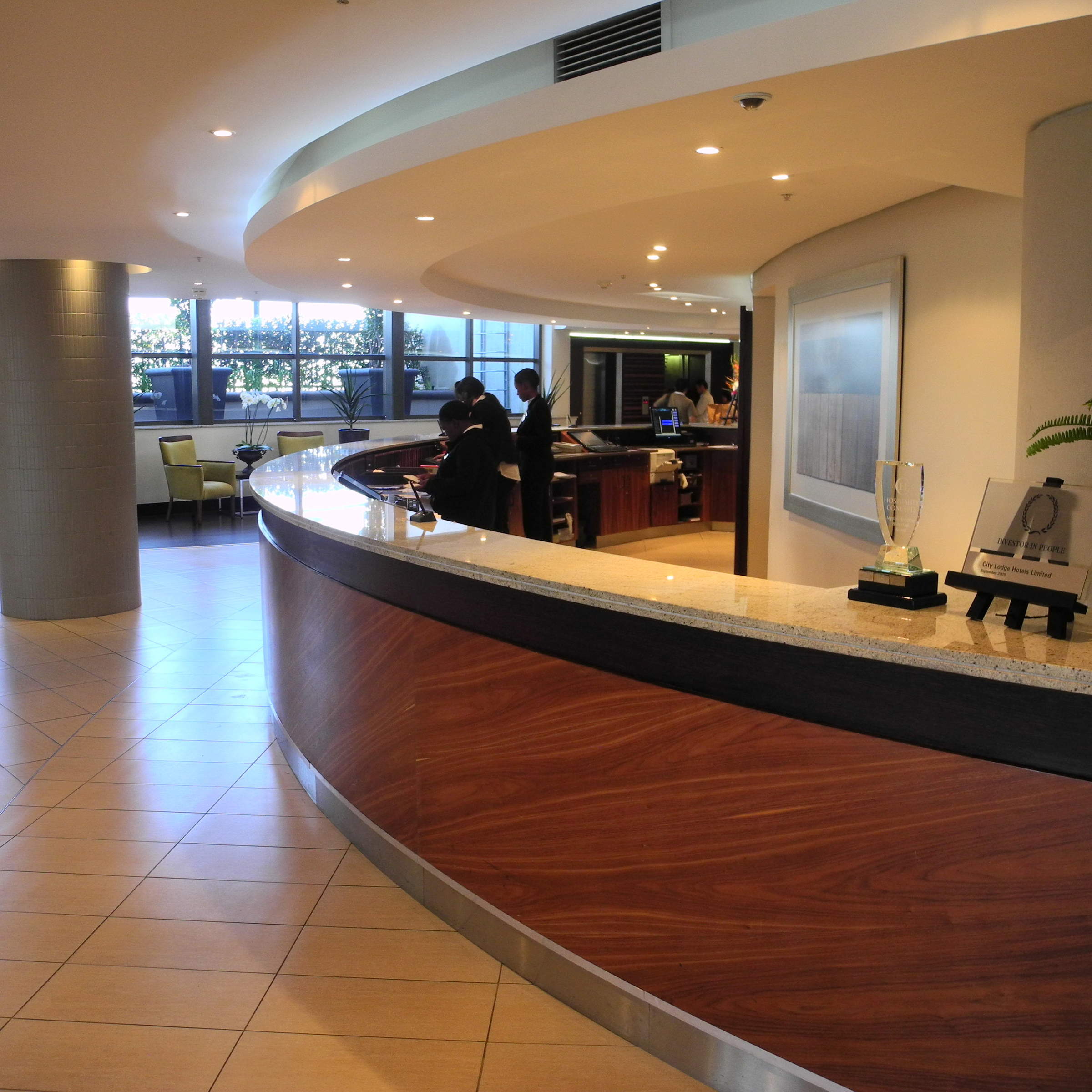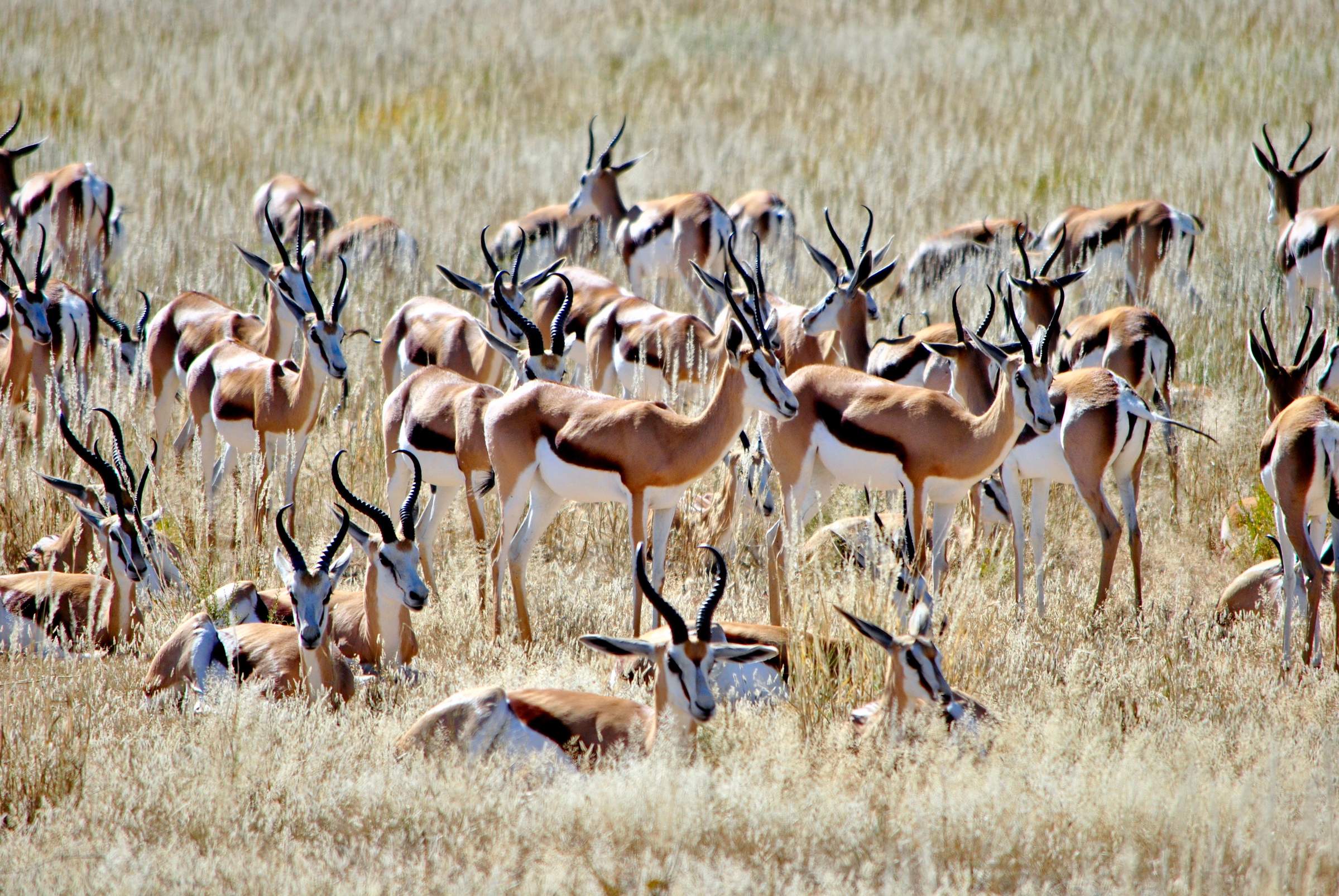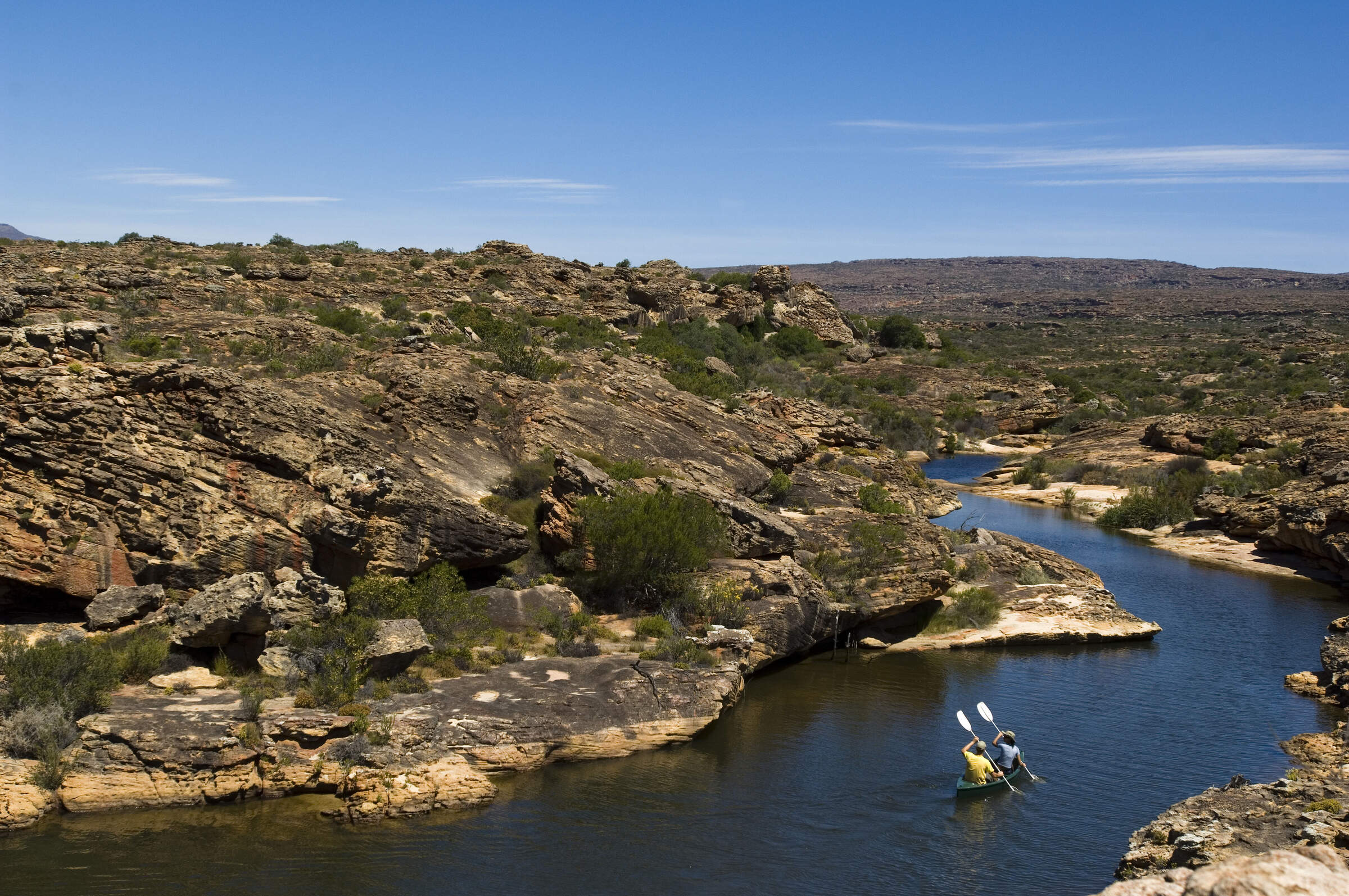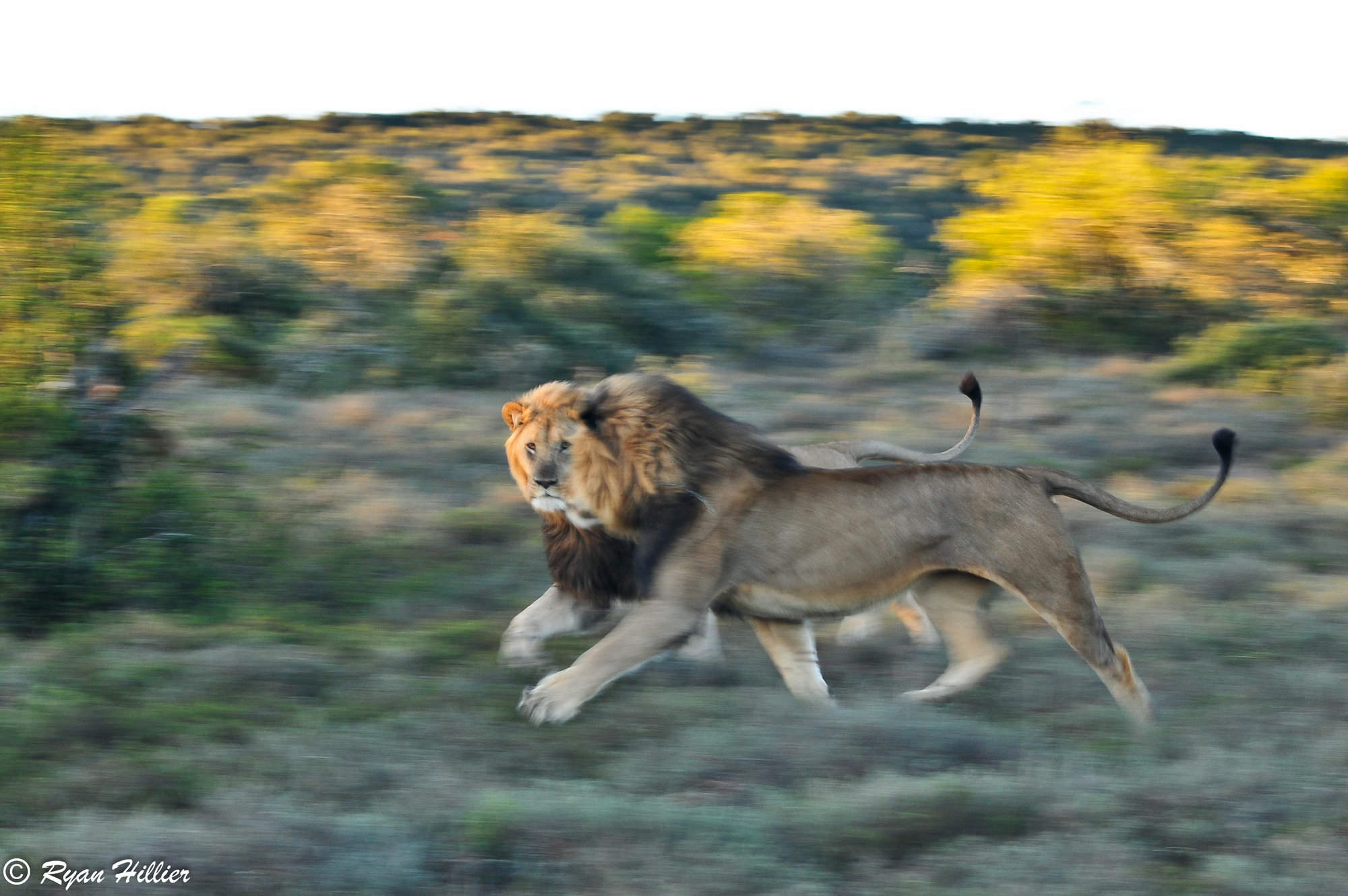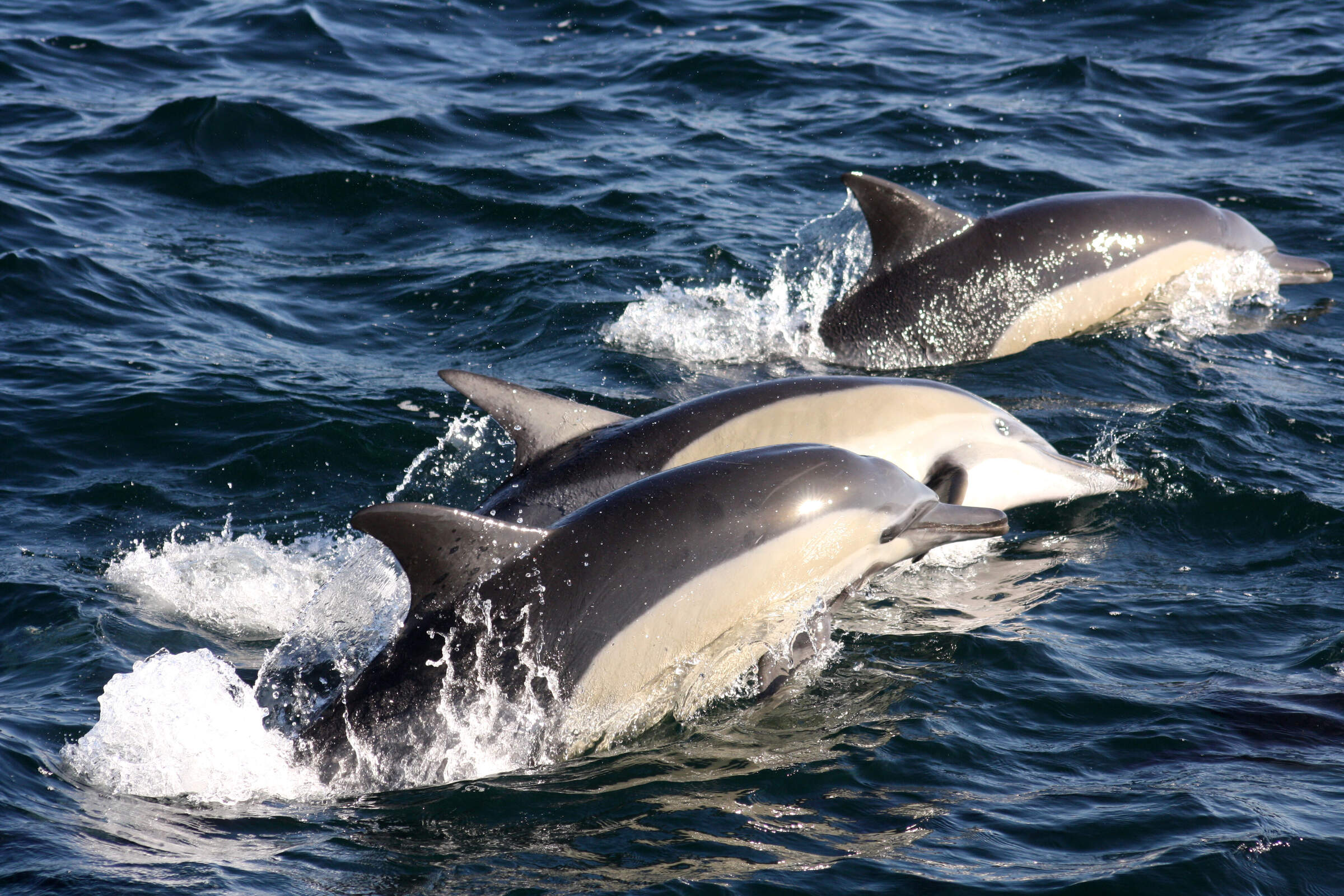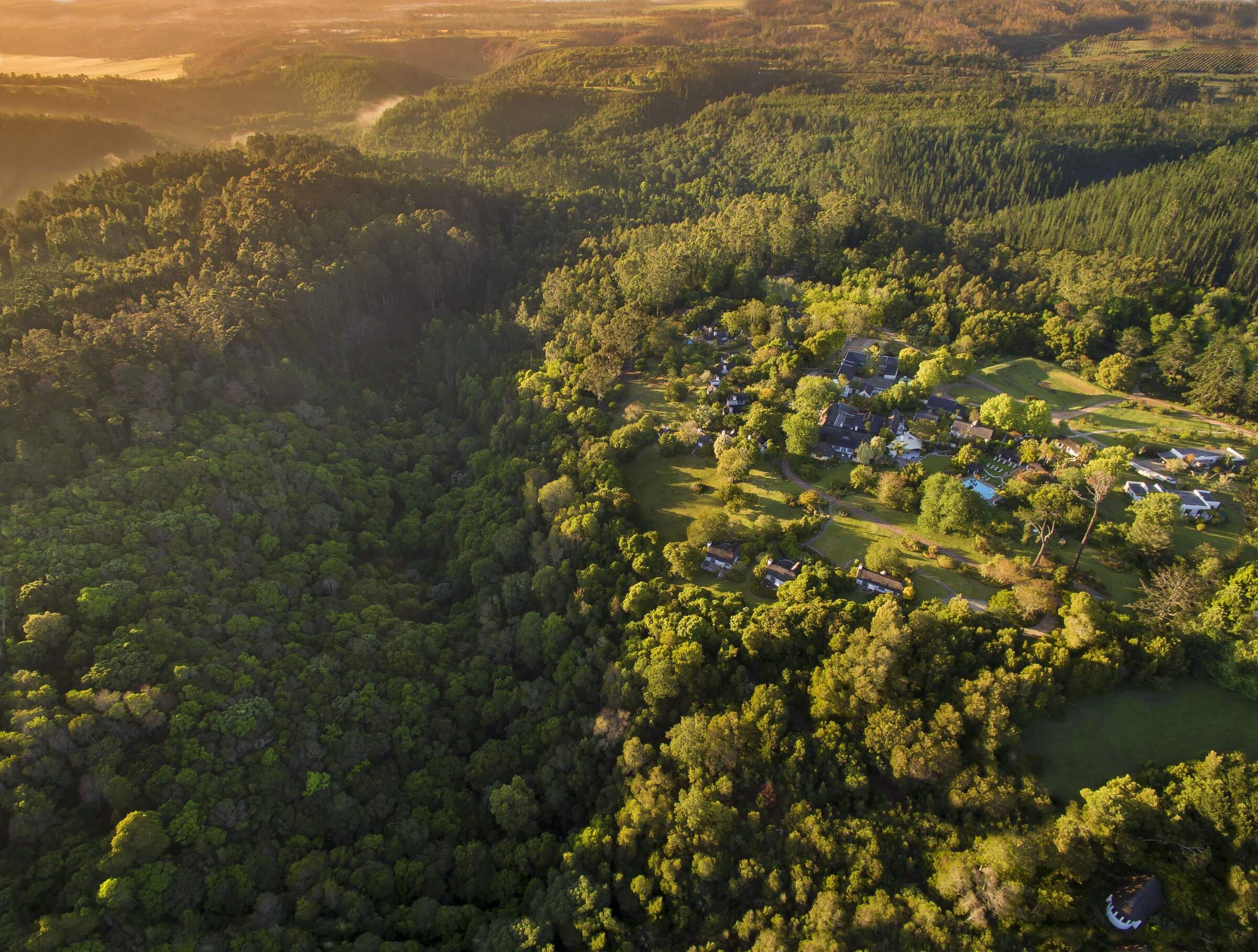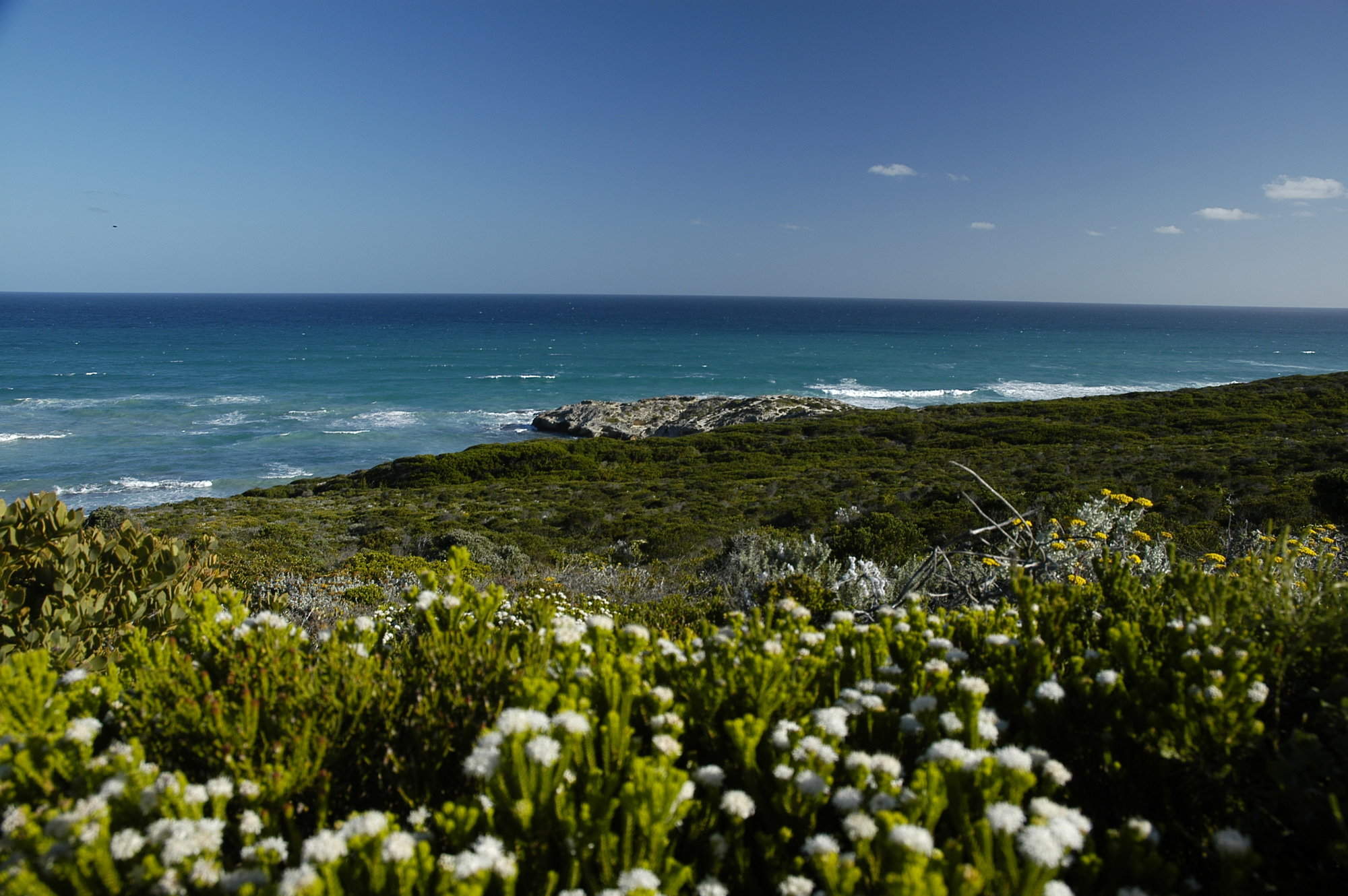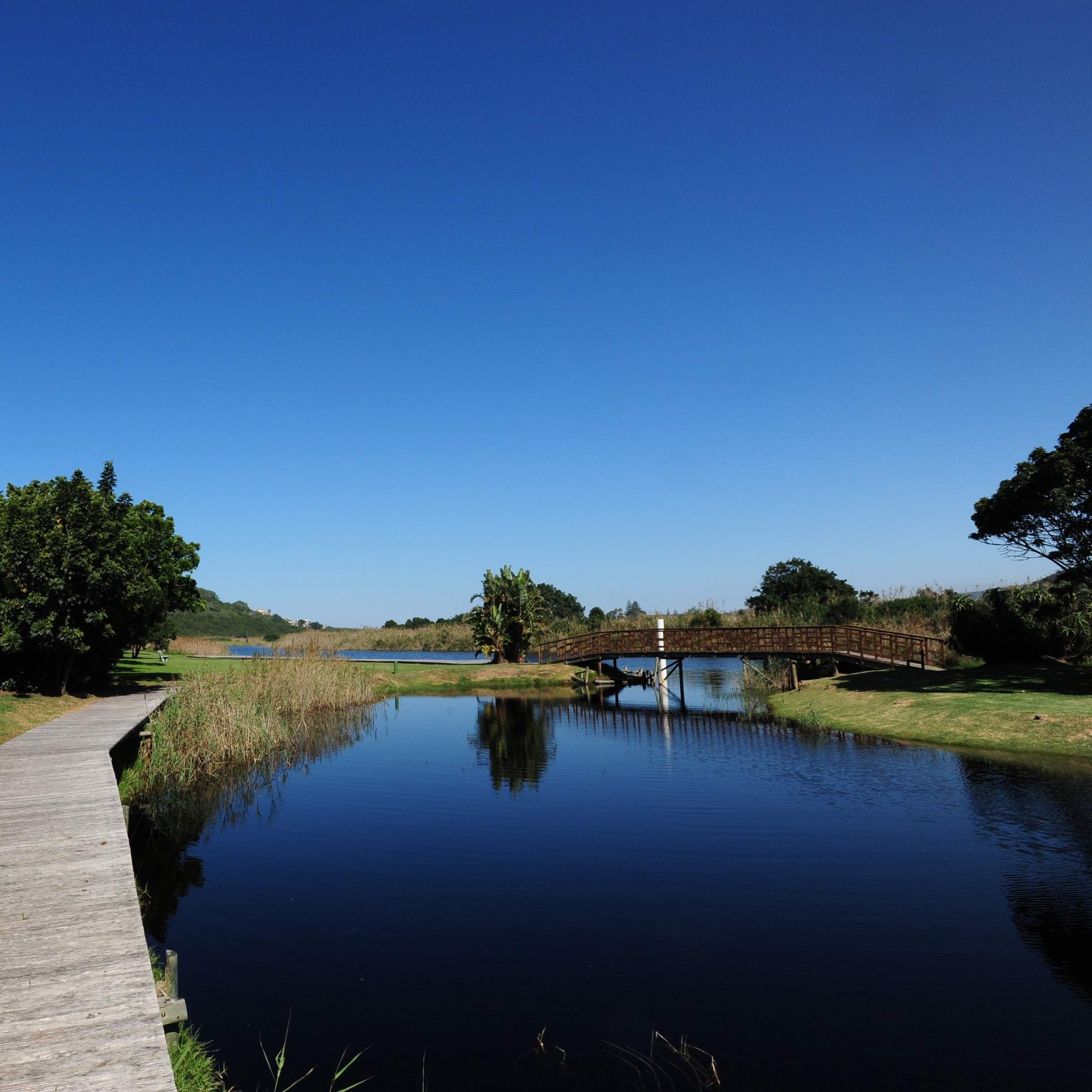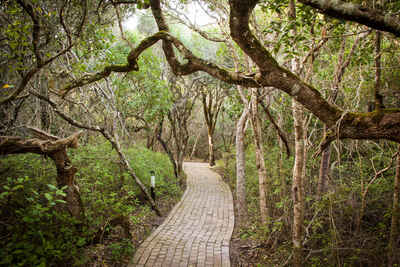
Grootbos is a small but very well-kept reserve.
There are opportunities to watch whales...
Grootbos Private Nature Reserve
Grootbos Private Nature Reserve
Above sweeping ocean bays, Grootbos nestles discreetly between ancient forests of gnarled milkwood trees and flower-filled fynbos hillsides.
Powered by the pioneering vision and unstinting energy of the Lutzeyer family, Grootbos Private Nature Reserve is dedicated to the preservation and understanding of the endemic fynbos ecosystem, which once covered much of Cape.
After decades of conservation work to restore the natural environment, the wilderness here is flourishing. The air is filled with the sweet, heady scent of seasonal flowers and the landscape sings with myriad insects and twittering birds. A hundred endangered plant species have new hope of survival, over 800 plant species clad the hillsides and three, indigenous Milkwood forests nurture trees over 1,000 years old.
Between Cape Town and the Garden Route, and just 20 minutes’ drive east of Hermanus, the reserve covers about 2.5km² and includes two first-class, contemporary lodges, each with a swimming pool, gourmet restaurant and panoramic terraces to soak up the sweeping coastal views.
Whilst Grootbos is far from a big-game experience, the reserve is home to some gentle wildlife treasures. Over 30 mammal species live on the reserve, from elusive small antelope to black-backed jackals, and birdwatching reveals resident nectar-sipping Cape sugarbirds, Knysna woodpeckers and rare Black Harriers.
From Walker’s Bay, the ‘Marine Big 5’ are visible too: take boat trips with marine biologists seeking colonies of basking Cape Fur Seals, African penguins and playful bottlenose dolphins; witness whale sightings close up; and for adrenalin junkies, there’s cage-dive with great white sharks.
All activities focus on the natural world, and guides here are generally excellent, having mostly been part of Grootbos’ impressive community development programme. 4WD botanical safaris explain the medicinal properties of plants and marvel at King Proteas – or you can embark on enchanting forest ambles, try horse-riding on hillside trails or head to sandy beaches and coastal caves to discover Stone Age treasures and Khoisan history.
Families will love the freedom, friendly staff and carefree adventures; hikers will explore the landscape on foot; wildlife enthusiasts will adore the oceanic escapes; and everyone will leave with a heartfelt appreciation of the joyful, progressive conservation that drives Grootbos.

Trips visiting Grootbos Reserve
Just ideas, we'll always tailor-make a trip for you
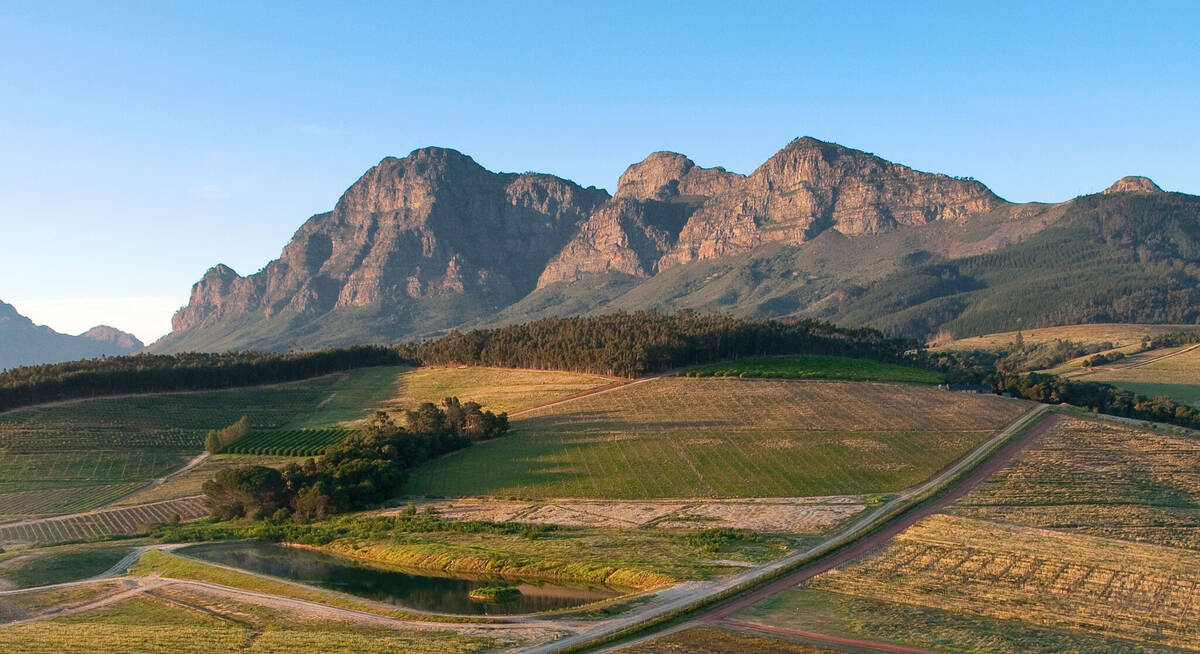
Cape Mountain Zebra Self-drive Safari
12 days • 4 locations
CAPE TOWN AIRPORT TO CAPE TOWN AIRPORT
Fine dining, luxurious accommodation and a wide of range of leisurely activities make this a superbly comfortable self-driven safari. Visit the cosmopolitan Cape Town, tranquil coastal retreats, stylish wine farms and spectacularly peaceful nature reserves.
US$4,440 - US$6,860 per person
Most recent reviews of our trips to Grootbos Reserve
Click below to browse all 23 reviews from Grootbos Private Nature Reserve. All from our travellers; all are in full & unedited.
Arrived 18 Dec 2024, 32 nights
"3-generation family tour"
Overall rating: Excellent
Arrived 11 May 2024, 23 nights
"May 2024 trip to Botswana and South Africa"
Overall rating: Excellent
Arrived 4 Jan 2020, 15 nights
"Our January 2020 trip to South Africa"
Overall rating: Excellent
Arrived 31 Dec 2019, 10 nights
"Brilliant, would liked to have stayed longer!"
Overall rating: Excellent
Arrived 28 Jan 2019, 22 nights
"My Jan 2019 trip"
Overall rating: Excellent
Arrived 28 Jan 2019, 12 nights
"My Jan 2019 trip"
Overall rating: Excellent
Arrived 9 Feb 2018, 17 nights
"My Feb 2018 trip"
Overall rating: Excellent
Arrived 8 Feb 2017, 21 nights
"My Feb 2017 trip"
Overall rating: Excellent
Arrived 19 Oct 2016, 24 nights
"Stunning scenery and welcoming hotels"
Overall rating: Excellent
Arrived 4 Mar 2016, 11 nights
"March 10 days in the Cape"
Overall rating: Excellent
Where to stay in Grootbos Reserve
Our suggestions for places to stay in Grootbos Private Nature Reserve

Garden Lodge
The Garden Lodge at Grootbos is a high-quality retreat in this fascinating, well-cared-for reserve which caters as well to families with young children as it does for couples and small groups.
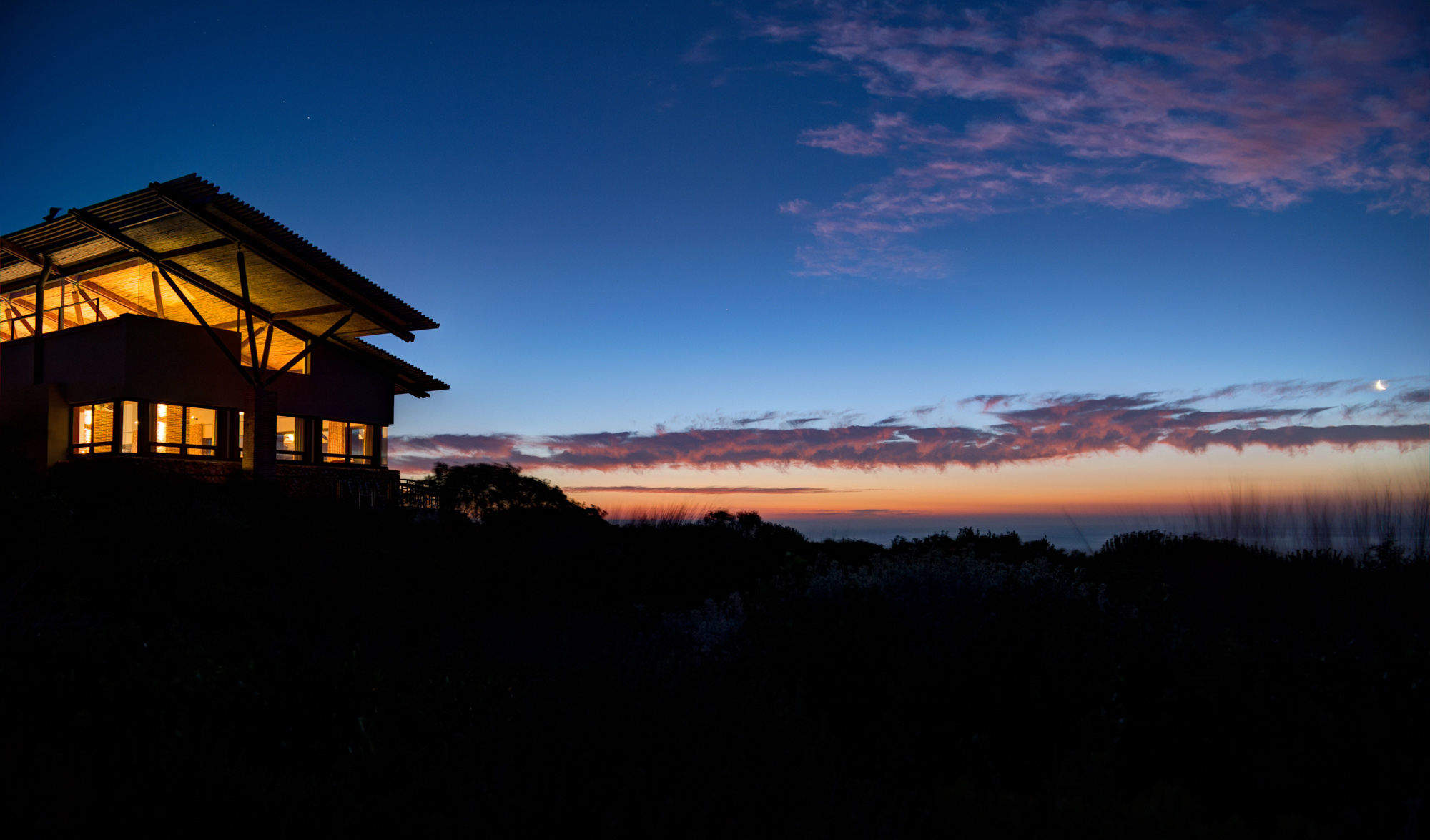
Forest Lodge
Set in a magical milkwood forest, Grootbos Forest Lodge is a well-run modern retreat offering a high-quality environment in which to relax, and to enjoy some of the guided activities on offer.
When to go to Grootbos Private Nature Reserve
Our month by month guide: What it's like to visit Grootbos Reserve in South Africa
Jan
Feb
Mar
Apr
May
Jun
Jul
Aug
Sep
Oct
Nov
Dec
South Africa in January
January is considered one of the best months to travel. In Cape Town the weather is hot and generally dry. The Garden Route is also excellent at this time of the year but has a more temperate climate, with slightly lower temperatures and rain can fall at any time of the year. In the Kgalagadi temperatures often top 40°C and short, sharp thunderstorms are also fairly frequent. Wildlife tends to disperse, although birding is excellent.
As this is the high season in the Cape there are numerous events, festivals and outdoor activities to attract visitors. Accommodation books up quickly and it may be necessary to book at least a year in advance. Reservations will often be needed for restaurants and visitor attractions too.
- Hot, largely dry days with clear skies – except on Garden Route
- Wildlife disperses in the Kalahari but birding excellent
- Events, festivals and outdoor activities staged for the high season
- The high season in the Cape, accommodation can cost up to 50% more
- Pre-booking of activities & attractions is essential
Our view
Fantastic: the very best time to visit
Weather in January
South Africa in February
In February conditions are largely the same as in January, although temperatures can be slightly higher, especially in the interior. The wind in Cape Town starts to ease off. Although the Garden Route can experience some rain, the days are pleasantly warm and largely dry.
The Kgalagadi remains very hot, but the birding is still excellent. Wildlife viewing can be tricky especially if there has been some rain, as the resulting long grass can obscure the animals.
For visitors it’s still the high season, but with the local school holidays over and residents back at work, it is less busy than December and January. Accommodation costs remain high and it’s still advisable to pre-book certain activities and restaurants.
- Hot, largely dry days with little cloud
- Wind starts easing in Cape Town
- Slightly less busy than December & January
- Accommodation costs remain high, activities still best pre-booked
Our view
Fantastic: the very best time to visit
Weather in February
South Africa in March
March is still a very good time to visit. Conditions remain dry and very warm in Cape Town, although temperatures start dropping off towards the end of the month. The wind has usually died right down.
The Kalahari remains very hot and in years of good rains vegetation is at its most lush – making wildlife viewing tricky.
Typically, the crowds dwindle, but it can get very busy if Easter falls in March. It is also worth bearing in mind that during major events in March, including the Cape Town Cycle Tour, Cape Epic Mountain Bike Tour, The Cape Town Carnival and the International Jazz Festival, accommodation can get very full.
Attractions remain busy but booking is less essential.
- Temperatures start falling towards the end of the month
- Cape Town hosts a number of world class sport and cultural events
- Wildlife in the Kgalagadi disperses, game viewing more challenging
- Crowds diminish as the high season comes to an end
- Accommodation can get busy during major events
Our view
Fantastic: the very best time to visit
Weather in March
South Africa in April
April is South Africa’s “shoulder” season and is often the most pleasant. Not too hot, not too cold, some rain but not masses. In Cape Town and along the Garden Route days are usually sunny, warm, windless and largely dry, although in Cape Town the chance of rain increases from the end of the month.
In the Kgalagadi the rainy season is typically over and migratory birds are starting to make their journey back up North. Vegetation remains lush but wildlife viewing starts picking up towards the end of the month.
The region is still relatively busy (especially of its still Easter) but it gets quieter towards the end of the month thus availability improves. Accommodation rates start to decrease, and it becomes less important to book restaurants and attractions in advance.
- Temperatures still warm and very pleasant, with little wind.
- Rain starts easing in the Kalahari and migratory birds start to depart
- Less busy, especially towards the end of the month - busy over Easter
- Accommodation frees up and prices start to come down
Our view
A very good time to visit
Weather in April
South Africa in May
May marks the start of the dry season in the Kgalagadi. Days are warm and dry with almost zero rainfall. Night-time/early-morning temperatures can drop towards 0°C. Wildlife viewing is at its peak as animals concentrate around the few remaining water sources.
Days can still be warm and sunny in Cape Town and on the Garden Route, but the weather becomes a lot more variable. May heralds the start of the rainy season in Cape Town and the winelands. Night-time temperatures rarely drop below 10 degrees in the coastal areas.
With far fewer tourists, accommodation prices are at their lowest. There is rarely any need to pre-book activities, but reservations are still advisable at some of the top restaurants.
- Higher chance of rain in Cape Town & the Winelands
- Day time temperatures drop significantly
- Wildlife viewing peaks in the Kgalagadi
- Low season so rarely busy & very few crowds
- Low season rates at the hotels & lodges
Our view
A good time to visit, with pros & cons
Weather in May
South Africa in June
Winter is now in full swing. Maximum temperatures in Cape Town rarely reach 20°C and the rainy season is well under way. Outdoor activities therefore become limited, but a number of high-quality indoor events are organised.
The Garden Route has, in general milder weather and less rain than Cape Town.
June sees the arrival of the first whales which migrate to the South African coastline to give birth.
In the Kgalagadi, daytime temperatures are warm but nights and early mornings are bitterly cold. Wildlife viewing is excellent as animals are drawn to the few remaining permanent water points.
Overall tourist numbers are at their lowest, as are the costs of flights and accommodation.
- Cold & wet weather in Cape Town, Kgalagadi warm days but cold at night
- One of the best months for wildlife viewing in the Kgalagadi
- Whales start arriving to have their calves
- Low visitor numbers & no crowds
- Accommodation & flight prices remain low
Our view
A good time to visit, with pros & cons
Weather in June
South Africa in July
The winter weather continues with very cold nights and early mornings in the Kgalagadi and virtually no rainfall. Vegetation here is really thinning out now and water even more scarce – so wildlife is easy to spot.
Despite the winter and local school holidays, Cape Town remains a great place to visit. On a wet and cold day, the Two Oceans Aquarium, Zeitz Mocca (art museum) and the Cape Town Comedy Club all make for great days out, as does a trip to the wine country or the annual Oyster Festival at Knysna.
By mid-July most of the whales have arrived to give birth. Hermanus is the best place to see them.
At the height of the low season, so accommodation and flight prices remain low.
- Generally cold & wet in the Cape, but good quality indoor events
- Very good wildlife viewing in the Kgalagadi
- Oyster festival in Knysna
- Local school holidays can make places a little busier than usual
- Accommodation and flight prices remain low
Our view
A good time to visit, with pros & cons
Weather in July
South Africa in August
While August experiences mostly wintry weather it does mark the very beginning of spring with temperatures starting to rise. Visitors are drawn to the West Coast and Namaqualand to see the wildflowers, which start blooming in late August and can be seen until mid-September. Whales are still in abundance now too.
The Kgalagadi is now very dry and wildlife vieiwng is still good. Temperatures start climbing towards the end of the month.
Despite the weather , visitor numbers can be high as the northern hemisphere schools close for their summer holidays. It may be a good idea to book certain attractions and restaurants in advance.
Simlarly, although accommodation prices are still low, flight prices can be a little higher than in previous months.
- Temperatures start rising – but still potential for cold & wet weather
- Wildflowers on the West Coast & in Namaqualand
- Good wildlife viewing in the Kgalagadi
- Whales continue to attract visitors
- Can get busy due to northern hemisphere school summer holidays
Our view
A good time to visit, with pros & cons
Weather in August
South Africa in September
Good wildlife viewing in the Kgalagadi continues and daytime temperatures increase quite dramatically. Mornings and evenings are still on the chilly side, but not as cold as they are in June, July and August.
The 1st of September is officially the start of spring in Cape Town. Days become warmer but not quite warm enough to enjoy the city’s beautiful beaches. Venues all over Cape Town play host to various artists during the Cape Town Fringe Festival.
Rainy days are fewer, but night times can still get chilly. Many hotels are still charging low season rates making September great value for money.
Elsewhere, Hermanus hosts the popular annual Whale Festival, and in the West of the Cape, wildflowers continue to bloom until the middle of the month.
- The start of spring; temperatures start rising
- Whale festival in Hermanus
- Cape Town Fringe Ferstival attracts a wide range of artists
- Wildflowers blooming well until the middle of the month
- Good wildlife viewing continues in the Kgalagadi
Our view
A very good time to visit
Weather in September
South Africa in October
The weather starts warming up nicely, Cape Town experiences pleasant days, with much less rain, nights can still be quite cool, but not cold. Some days are now warm enough to enjoy the beach. This is one of the best months to visit the Cape Region.
October is one of the hottest months in the Kalahari. Water remains very scarce, so the wildlife viewing is still very good. Towards the end of the month the odd spectacular thunderstorm is possible with much lightning and thunder. Migratory birds start to arrive, and resident species gear up for the breeding season.
The whales are still present with Hermanus and False Bay the best places to see them.
- Days start warming up; fewer rainy days in Cape Town
- Very hot in the Kalahari – thunderstorms season starts
- Migratory birds start arriving & resident birds start breeding
- Whale watching still excellent in Hermanus and False Bay areas
- Start of the high season, getting busy and accommodation prices rise
Our view
A very good time to visit
Weather in October
South Africa in November
By November Cape Town is experiencing summer conditions with hot, clear days and warm, pleasant evenings. It’s a great month to enjoy the beaches before the peak holiday season in December. There are no real downsides to visiting in November and you may even get a few accommodation specials before prices go up for the festive season. Kirstenbosch Botanical Gardens begins their summer outdoor concerts with local and international artists performing.
The Kgalagadi remains hot but thunderstorms are a bit more regular. With the rains, water sources become more plentiful and wildlife disperses but this is when herbivores such as Springbok start lambing. Photography improves as conditions become less hazy.
This is the last month for regular whale sightings – they tend to migrate back down south by early December.
- Summer now in full swing, with temperatures often reaching 30°C
- Rainy days scarce; evenings warm & very pleasant
- Antelope start lambing in the Kgalagadi; wildlife generally dispersed
- Last month for regular whale sightings
- Good time to visit Cape Town before the peak holiday season
Our view
Fantastic: the very best time to visit
Weather in November
South Africa in December
December is usually Cape Town’s hottest month when temperatures frequently breach 30°C. You can expect hot and cloudless days, and almost no rain but December does see the occasional very windy day.
The Kalahari is still hot, but temperatures are not quite as high as previous months. With the rainfall the bush transforms into various shades of green. Wildlife disperses as water become more widely available.
The Garden Route enjoys warm to hot days with rain at any time but usually not over an extended period.
Mid to late December becomes incredibly busy with concerts, festivals and various outdoor activities in Cape Town. Hotel prices rise, tourist attractions and beaches are crowded and most popular sites and restaurants need to be booked in advance.
- Long, hot sunny days
- Kgalagadi bursts into life as rainy season kicks in
- Wildlife viewing a bit trickier as wildlife disperses
- Cape Town buzzing with concerts, events, festivals etc
- Peak season: attractions get very busy & accommodation costs rise
Our view
Fantastic: the very best time to visit
Weather in December
Grootbos Private Nature Reserve: In detail
Grootbos Private Nature Reserve
Nestled amongst the hills, 20 minutes’ drive east of Hermanus, Grootbos Private Nature Reserve is a real gem.
It’s a small but very well-kept reserve which is dedicated to the preservation and understanding of the endemic fynbos ecosystem – which once covered much of Cape. It’s also the location for several first-class lodges. Grootbos Private Nature Reserve covers about 2500ha (2.5km²), much of which has sweeping views across Walker Bay to Cape Point by day, and at night the twinkling lights of Gansbaai are often also visible.
The reserve’s raison d’être is the focus that puts on its unique ecosystem, from its extensive stands of fynbos, to the ancient Milkwood Forest and the local marine life. The air is filled with the sweet, heady scent of seasonal flowers; the landscape sings with the sound of a million insects and birds; and the vast sky shows an ever-changing display of colour and light.
History of Grootbos Private Nature Reserve
At the time Michael and his wife Dorothee were overwhelmed by the stunning sea views and the idea of family weekends spent on the farm with horses, pigs and fresh veggies, while the pink fields of flowering wild malva convinced Michael’s parents.
In 1994 Michael sold his business in Cape Town to focus on a guest farm here, soon followed by his brother and sister-in-law, Tertius and Gabi Lutzeyer. From the beginning, the Lutzeyers based their appeal on the farm’s diverse flora and fauna. Over the years, the humble guest farm has become a trio of lodges, and Michael remains one of the most impressive, hands-on owners that we know of in Africa.
What's in the name: ‘Grootbos’
The name Grootbos, an Afrikaans word meaning 'large forest', comes from the presence of the ancient indigenous Milkwood forests. Milkwood trees are known to live for more than 1,000 years. The tree's scientific name, Sideroxylon inerme, derives from the words for ‘Iron-wood’ in Greek, referring to its very hard timber.
Flora and Fauna of Grootbos Private Nature Reserve
The vegetation of Grootbos Reserve
An extensive fifteen-year survey of the fynbos at Grootbos Nature Reserve has revealed a remarkable 765 plant species, 100 of which are endangered and 6 of which are completely new to science! Four of these new species are known to exist only within the confines of the reserve. Two of these discoveries Lachenalia lutzeyeri and Capnophyllum lutzeyeri have been named after Michael’s father, Heiner Lutzeyer.
Fire plays a highly significant role in the fynbos ecosystem here – which the guides explain as they take visitors around the reserve. This dependence was clearly illustrated after a huge fire on Grootbos in 2006: then plants sprung up which hadn’t been recorded here before, and the Reserve’s list of the plant species grew by 70, from 680 to 750.
Fauna of Grootbos Reserve
On the whole, Grootbos isn’t a place to visit for big game sightings. The fynbos is generally quite dense and tall, whilst most of the fauna here is small. Patient and lucky visitors might glimpse a small antelope or – as we did – a molerat. Six different types of small antelope are found at Grootbos: common duiker, Cape grysbok, steenbok, grey rhebok, bushbuck and klipspringer on the rocky outcrops.
Meanwhile nocturnal roamers include the honey badger, porcupine, caracal, stripped polecat and the small-spotted genet. Troops of chacma baboons are encountered occasionally, we’re told that the occasional Cape leopard that still roams through the mountains.
But the majority of wildlife at Grootbos Natural Reserve is of the flappering, chirping, buzzing, crawling and croaking kind.
For example, the Cape sugarbird, which lives in an interdependent relationship with Protea species and is notable for the male’s tail which extends to almost 70% of its total length. Similarly, the long, curved beaks of the orange-breasted and southern double-collared sunbirds have evolved to sip nectar from the long, curved floral tubes of various erica species.
Overall about 125 bird species have been recorded on the Grootbos Reserve, and some of the specials include paradise flycatchers, southern tchagras, Knysna Woodpeckers, black harriers and southern boubous
A small distance from the reserve – although just visible on a clear day (!) – visitors to Grootbos around July to November can sometimes spot southern right whales in Walker Bay.
Sustainability and social engagement
Amongst the local community, Grootbos promotes awareness of the area’s unique ecosystems, and is working to help develop ‘nature based sustainable livelihoods’ for the more disadvantaged communities. They have set up the ‘Green Futures Horticultural and Life Skills College’ which provides practical training for the unemployed in landscaping, horticulture and life skills. An indigenous plant nursery linked to this college help to fund tuition. Projects have also built a football pitch in Gansbaai, and are currently working on building a school for disadvantaged children, and a number of other community and wildlife projects in this area.
Attractions near to Grootbos
Gansbaai, located 5km from Grootbos Reserve, is a fishing town known for whale-watching and its great white sharks – which have made cage diving popular here.
Hermanus is a busy town just 20km from Grootbos, also known for its whale-watching – and the destination in its own right for some of our travellers.
Map of Grootbos Private Nature Reserve
Choices for where to stay in Grootbos Private Nature Reserve
Grootbos Private Nature Reserve: Holidays

Cape Mountain Zebra Self-drive Safari
12 days • 4 locations
CAPE TOWN AIRPORT TO CAPE TOWN AIRPORT
Fine dining, luxurious accommodation and a wide of range of leisurely activities make this a superbly comfortable self-driven safari. Visit the cosmopolitan Cape Town, tranquil coastal retreats, stylish wine farms and spectacularly peaceful nature reserves.
US$4,440 - US$6,860 per person
Top 2 hotels and places to stay in Grootbos Private Nature Reserve
Listed below are our recommendations for nice places to stay in this region. Ask us for more details of what's likely to suit you best!

Garden Lodge
The Garden Lodge at Grootbos is a high-quality retreat in this fascinating, well-cared-for reserve which caters as well to families with young children as it does for couples and small groups.

Forest Lodge
Set in a magical milkwood forest, Grootbos Forest Lodge is a well-run modern retreat offering a high-quality environment in which to relax, and to enjoy some of the guided activities on offer.

Looking for inspiration on where to travel next?
Visit our trip chooser to explore your options and find inspiration for your perfect African adventure
Inspire meVideos from Grootbos Private Nature Reserve
Watch these videos to learn more about Grootbos Private Nature Reserve

